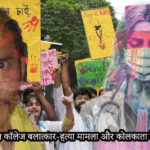आजकल, योग और ध्यान की बढ़ती लोकप्रियता हर जगह देखी जा सकती है। अब यह सिर्फ भारत तक सीमित नहीं रहा।
दुनिया भर में लोग योग और ध्यान को अपनाने लगे हैं।
इसकी वजह से मानसिक और शारीरिक स्वास्थ्य में सुधार देखा गया है।
आंकड़े और प्रभाव
पिछले बीस वर्षों में योग और ध्यान की बढ़ती लोकप्रियता ने नया रिकॉर्ड बनाया है।
2022 तक, अमेरिका में ही 60 मिलियन से ज्यादा लोग ध्यान और 55 मिलियन से अधिक लोग योग करते हैं।
सोशल मीडिया पर योग और ध्यान की बढ़ती लोकप्रियता ने इसे और भी आसान बना दिया है।
मानसिक स्वास्थ्य में लाभ
योग और ध्यान की बढ़ती लोकप्रियता का मुख्य कारण मानसिक स्वास्थ्य में लाभ है।
नियमित योग से तनाव कम होता है और मन शांत रहता है। ध्यान से एकाग्रता बढ़ती है और नींद अच्छी आती है।
इसके अलावा, यह आत्म-जागरूकता और सकारात्मक सोच को भी बढ़ाता है।
शारीरिक स्वास्थ्य में बदलाव
योग और ध्यान की बढ़ती लोकप्रियता से शारीरिक स्वास्थ्य में भी बड़ा बदलाव आया है।
योग से शरीर लचीला और मजबूत बनता है। ध्यान के साथ, सांस की तकनीकें जैसे प्राणायाम, शरीर में ऊर्जा और संतुलन लाती हैं।
अब, कई खेल और कॉर्पोरेट संस्थान भी योग को अपनी दिनचर्या में शामिल कर रहे हैं।
भारत की भूमिका
योग और ध्यान की बढ़ती लोकप्रियता के पीछे भारत की अहम भूमिका है।
भारत ने योग और ध्यान को विश्व स्तर पर पहचान दिलाई है।
विश्व योग दिवस और ध्यान दिवस जैसे आयोजन, भारत की सांस्कृतिक शक्ति को दर्शाते हैं।
भारतीय गुरु और संस्थाएं पूरी दुनिया में योग और ध्यान सिखा रही हैं।
डिजिटल युग में विस्तार
आज डिजिटल प्लेटफॉर्म पर योग और ध्यान की बढ़ती लोकप्रियता देखी जा सकती है।
यूट्यूब, ट्विटर और इंस्टाग्राम पर हजारों वीडियो और लाइव क्लासेज़ उपलब्ध हैं।
इससे, हर उम्र के लोग कहीं भी योग और ध्यान सीख सकते हैं।
भविष्य की दिशा
आने वाले समय में योग और ध्यान की बढ़ती लोकप्रियता और भी बढ़ेगी।
लोग अब मानसिक और शारीरिक स्वास्थ्य के लिए प्राकृतिक तरीकों को अपनाना पसंद कर रहे हैं।
योग और ध्यान की बढ़ती लोकप्रियता ने जीवन को संतुलित और खुशहाल बनाया है।
Links:











Can you be more specific about the content of your article? After reading it, I still have some doubts. Hope you can help me.
Thanks for sharing. I read many of your blog posts, cool, your blog is very good.
Your point of view caught my eye and was very interesting. Thanks. I have a question for you.
Your article helped me a lot, is there any more related content? Thanks!